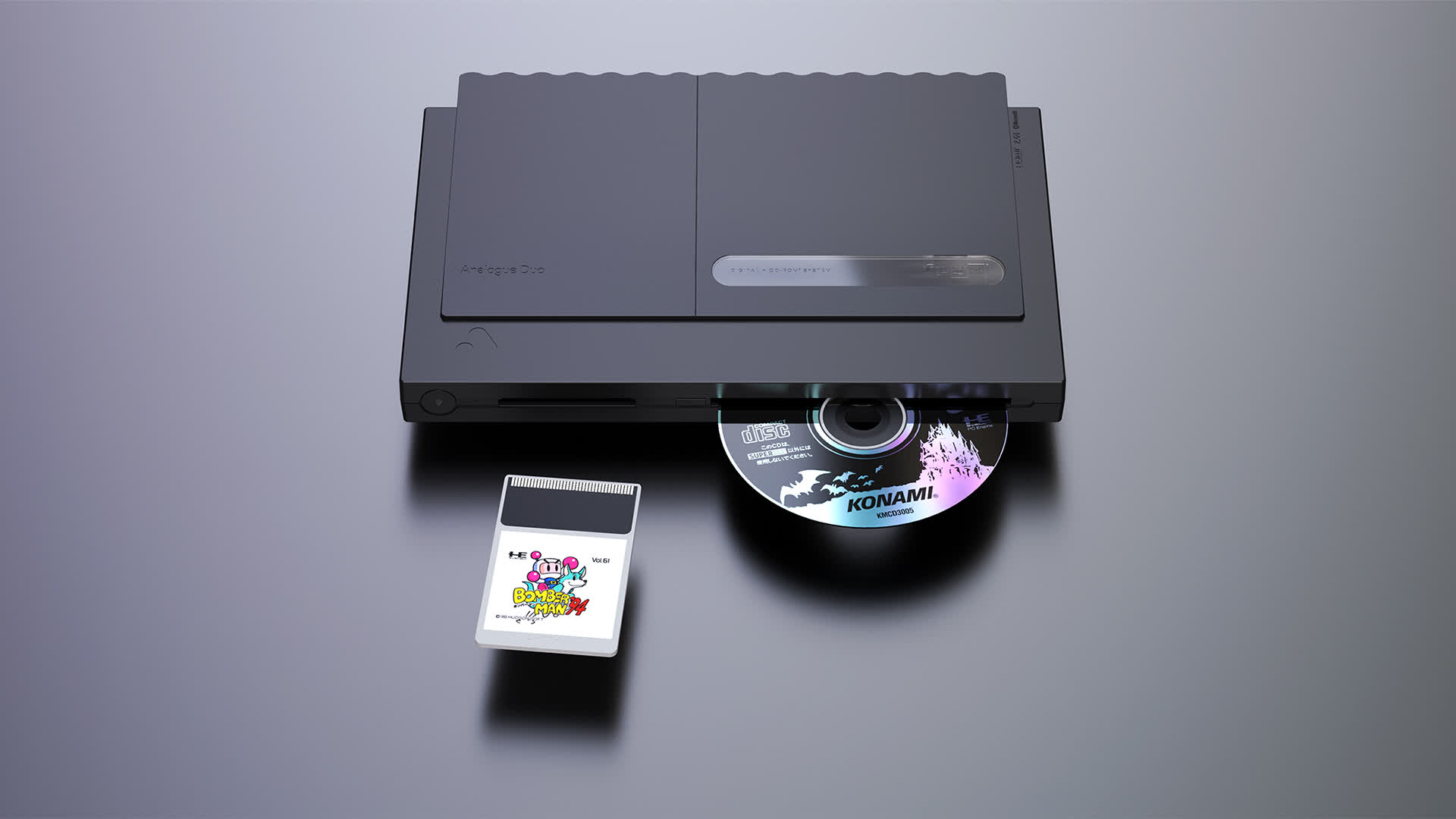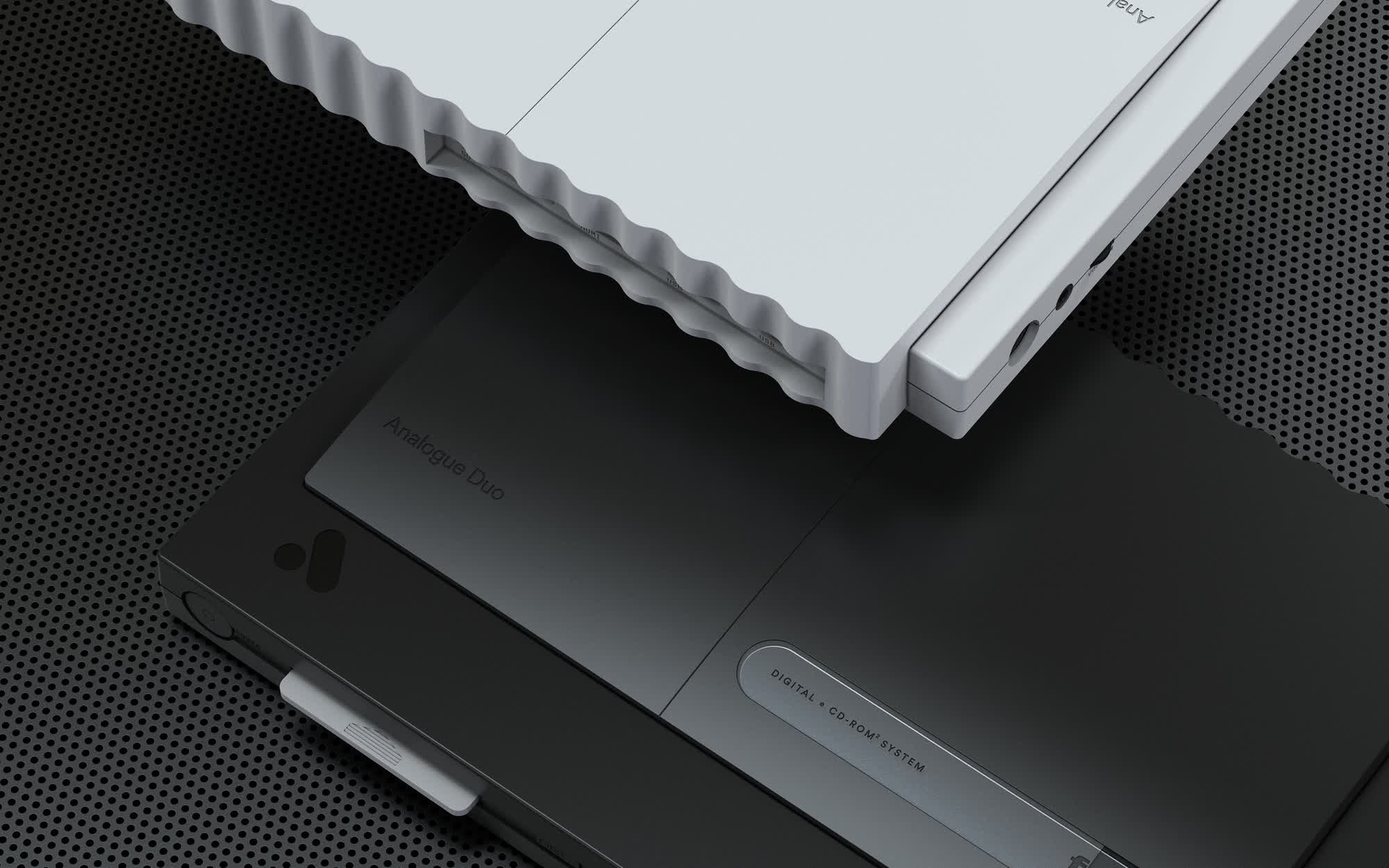Editor's take: Aesthetically, this might be one of Analogue’s best creations to date. The Duo, offered in two colorways, is the perfect blend of modern flare and retro design. And at $199, it doesn't feel unreasonably priced, either.

The TurboGrafx-16 has been getting a lot of love lately. Konami, which acquired the rights to the console back in 2012, announced and subsequently released a miniature version of the underappreciated system earlier this year. Now, it’s Analogue’s turn.
The retro gaming specialist has announced Duo, an all-in-one reimagining of nearly every NEC system and game format ever created. With a dedicated cartridge slot and a CD-ROM drive, it can play TurboGrafx-16, PC Engine, SuperGrafx, TurboGrafx CD, PC Engine CD-ROM and Super Arcade CD-ROM games as they were meant to be enjoyed.

There’s no emulation here. Analogue said it spent thousands of hours coding the Altera Cyclone V FPGA to accurately replicate the original hardware. It supports 1080p video and 48KHz 16-bit audio as well as Bluetooth and 2.4GHz wireless. There’s even an original-style TurboGrafx-16 controller port should you want to go full-on retro with your old wired gamepad.
The Analogue Duo will arrive in limited quantities sometime in 2021. Interested parties can sign up to be notified as soon as the console is available. Pricing is set at $199 which includes the unit itself, an HDMI cable, a USB cable and a USB power supply.
If that’s a bit too much scratch, the TurboGrafx-16 Mini is currently going for $99.99 over on Amazon.
https://www.techspot.com/news/87149-analogue-latest-retro-remake-all-one-turbografx-console.html